NUTRITION
Great start
Here’s how to avoid ultra-processed foods at breakfast
Ultra-processed foods – think foods that contain ingredients you wouldn’t normally find in your kitchen – are everywhere, making them hard to avoid.
We all know it’s a good idea to cut down on eating them but, with our hectic lives, it’s also tempting to reach for these often time-saving items. Habit can influence what we eat, too: it can be particularly easy to reach for highly processed foods at breakfast time, often without even realising it when items are marketed as healthy, so why not pre-prep your own versions of your favourites at the weekend, ready for the week ahead?
HOMEMADE BAKED BEANS
Some brands of shop-bought baked beans contain glucose-fructose syrup and modified maize starch to sweeten and thicken the sauce. This recipe uses cannellini beans, which are lower in sugar and salt than the navy beans found in Heinz’s version, for instance. You’ll get three of your 5-a-day here, too.
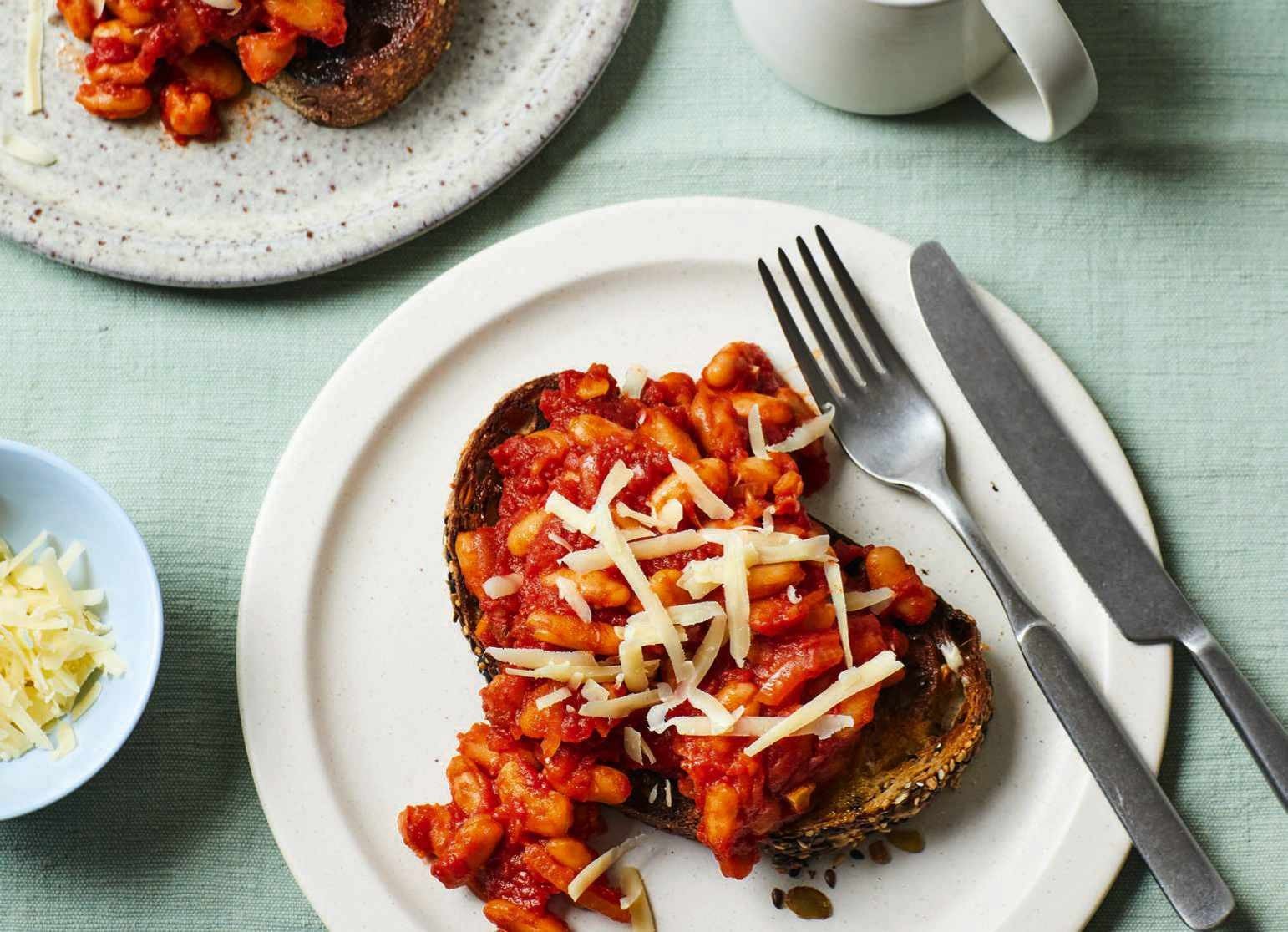
Serves 4
Ingredients
• 1 tbsp extra virgin olive oil
• 2 onions, sliced
• 2 garlic cloves, crushed
• 1 tbsp smoked paprika
• 2 x 400g tins of cannellini beans (rinsed and drained)
• 2 x 400g tins chopped tomatoes
• 1 tbsp honey
• 2 tbsp tamari
• Toast, to serve
METHOD
1 Set a medium-sized saucepan over a low-medium heat and add the oil. Once hot, add the onions and gently fry for 10 minutes until they begin to caramelise.
2 Add the garlic and paprika and cook for 30 seconds.
3 Turn the heat up to medium and stir in the beans, tomatoes, honey and tamari. Gently simmer for 10 minutes, stirring regularly, until the sauce has thickened.
4 Serve with wholegrain toast. Add a small sprinkle of Cheddar cheese on top if you wish.
“It can be very easy to reach for highly processed foods at breakfast time”
30g
A sensible portion size for Cheddar, which will add calcium, protein and fat to your meal
NUTRITIONAL ANALYSIS
• 0.5g saturates • 37g carbs • 17g sugars • 12g fibre • 12g protein • 1.1g salt
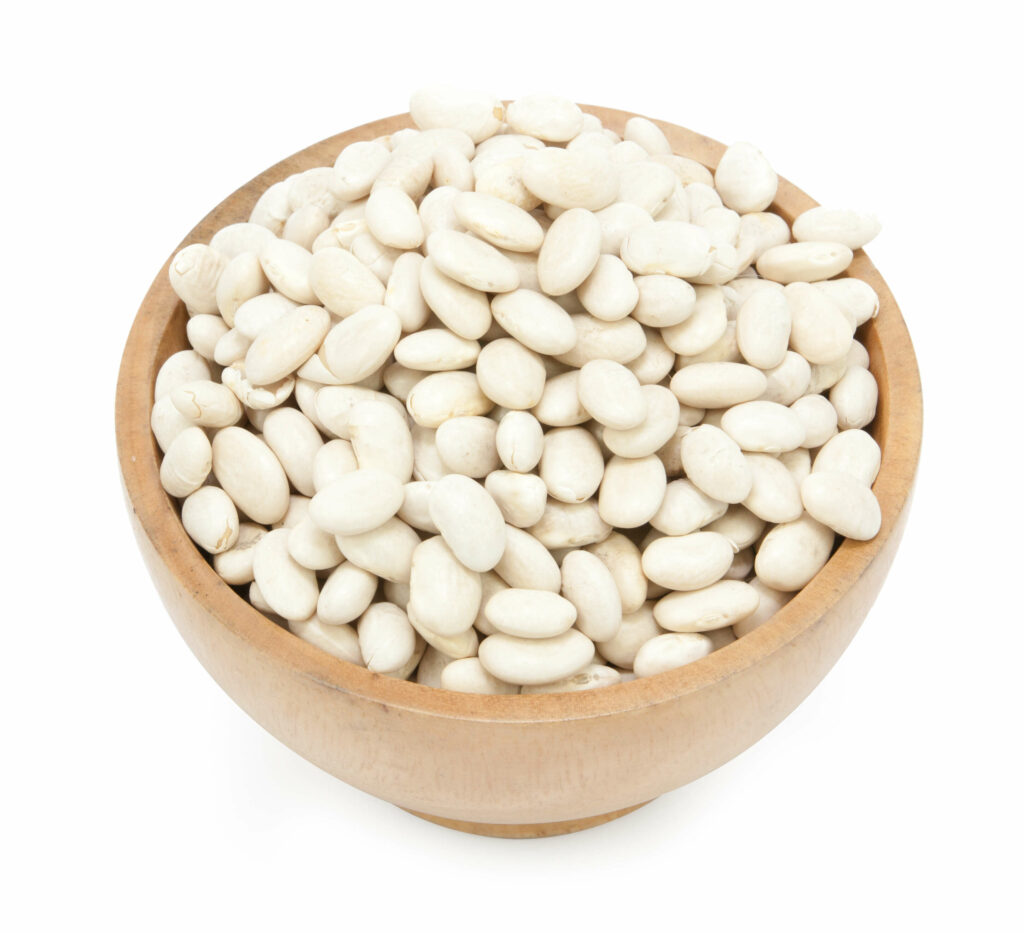
Key ingredient: Cannellini beans
Rich in protein, carbohydrate and fibre, cannellinis also contain B vitamins, especially folate, which helps with cell growth and function. They also have immune-boosting vitamin E, bone-friendly vitamin K and minerals including iron (which helps transport oxygen around the body); potassium (which can help keep your blood pressure in check) and magnesium (for healthy bones).
PECAN AND COCONUT GRANOLA
While granola has a healthy image, it can contain preservatives such as sulphur dioxide, and glucose-fructose syrup for sweetness, along with lots of sugar.
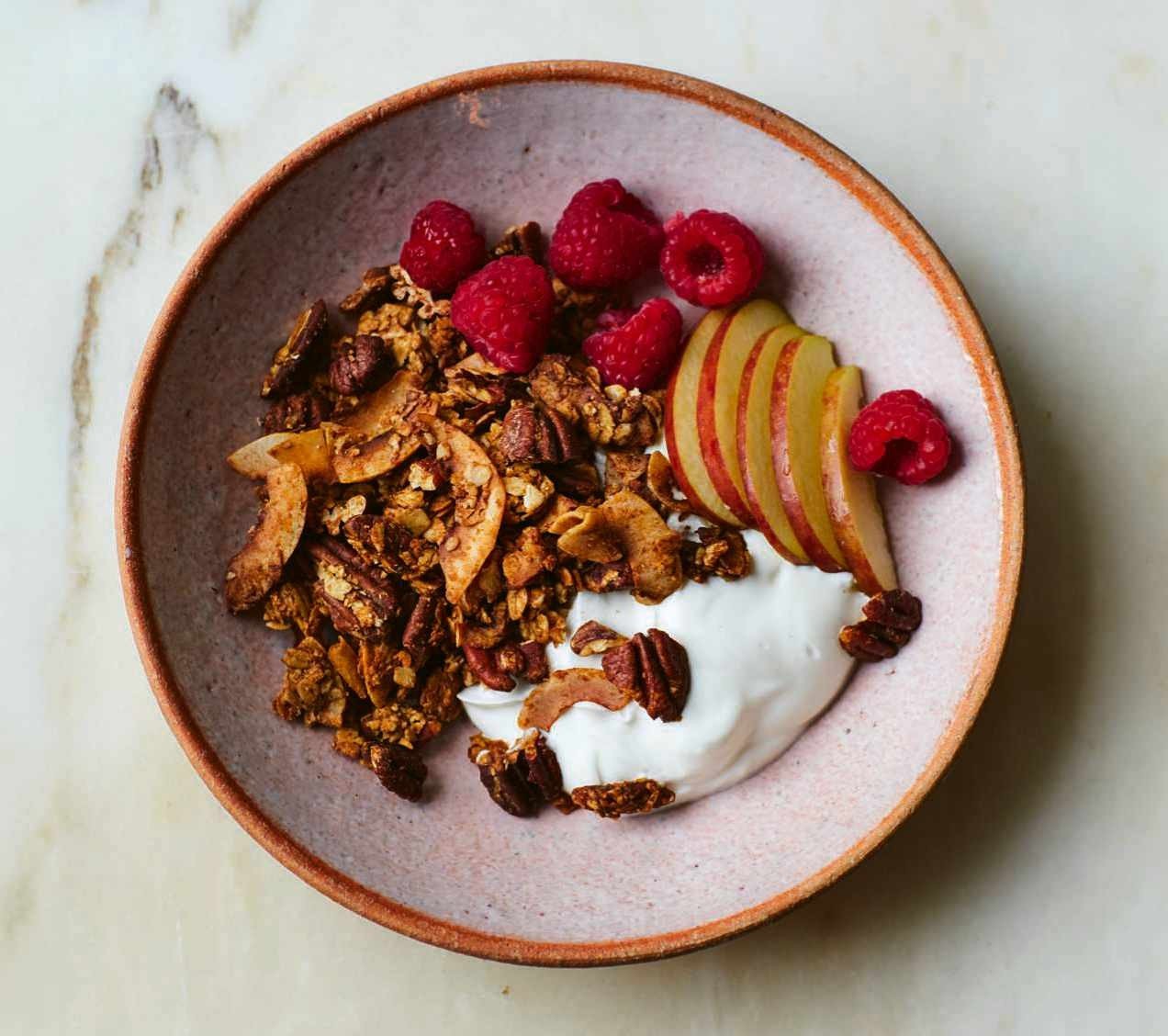
Serves 8
Ingredients
• 350g whole rolled oats
• 120g pecan nuts, chopped
• 60g coconut flakes
• 1 tbsp ground cinnamon
• ½ tsp sea salt
• 2 tbsp extra virgin olive oil
• 2 tbsp honey (optional)
• 4 tbsp Smooth almond butter (homemade or eg Meridian 100% nuts version)
METHOD
1 Preheat the oven to 150°C/130°C fan/Gas 2 and line a baking sheet with parchment paper.
2 Place all the dry ingredients in a bowl and combine. Drizzle in the olive oil, honey (if using) and almond butter and stir with a spatula until fully combined.
3 Transfer the granola to the baking sheet and press it into a large oval shape about 2.5cm deep with your hands.
4 Bake for 15 minutes, then remove from the oven and gently break the granola apart slightly with a fork. Bake for a further 15 minutes until golden.
5 Remove the granola from the oven and leave to cool.
2
This granola will keep in an airtight container for up to two weeks. You can also freeze it
NUTRITIONAL ANALYSIS
Per serving 417kcal • 25g fat • 6g saturates • 36g carbs • 5g sugars • 6g fibre • 9g protein • 0.3g salt
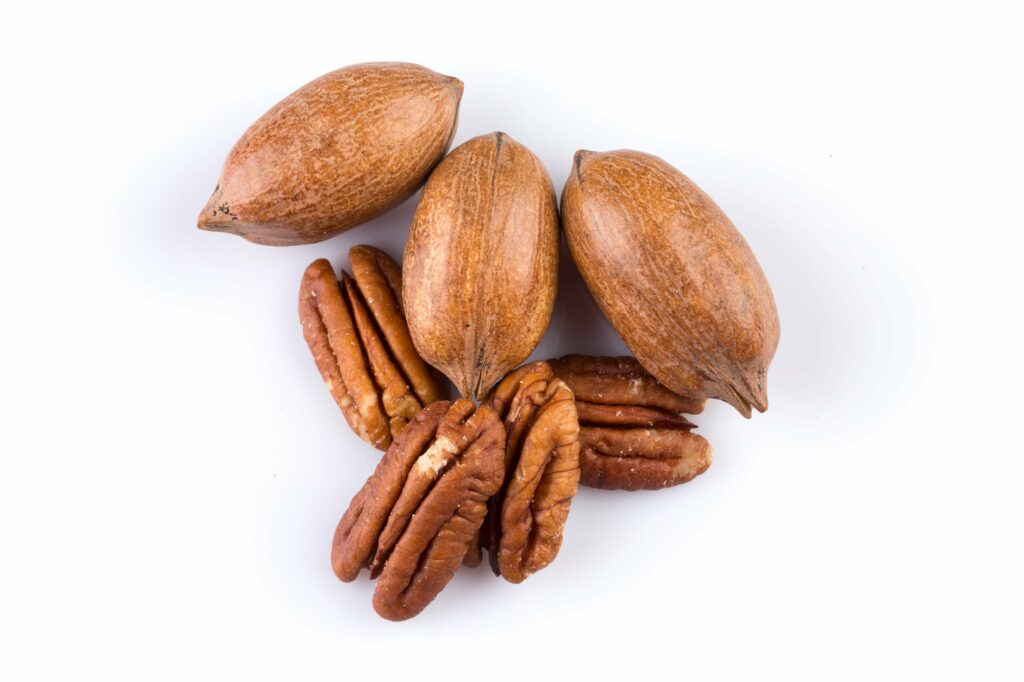
Key ingredient: Pecan nuts Food Fight
While there’s 20g of fat in 28g of this sodium-free North American nut, only 1.7g is the less-healthy saturated type; most of it is made up of heart-healthy mono- and poly-unsaturated fats. They are good sources of protein and fibre and contain several vitamins and minerals.
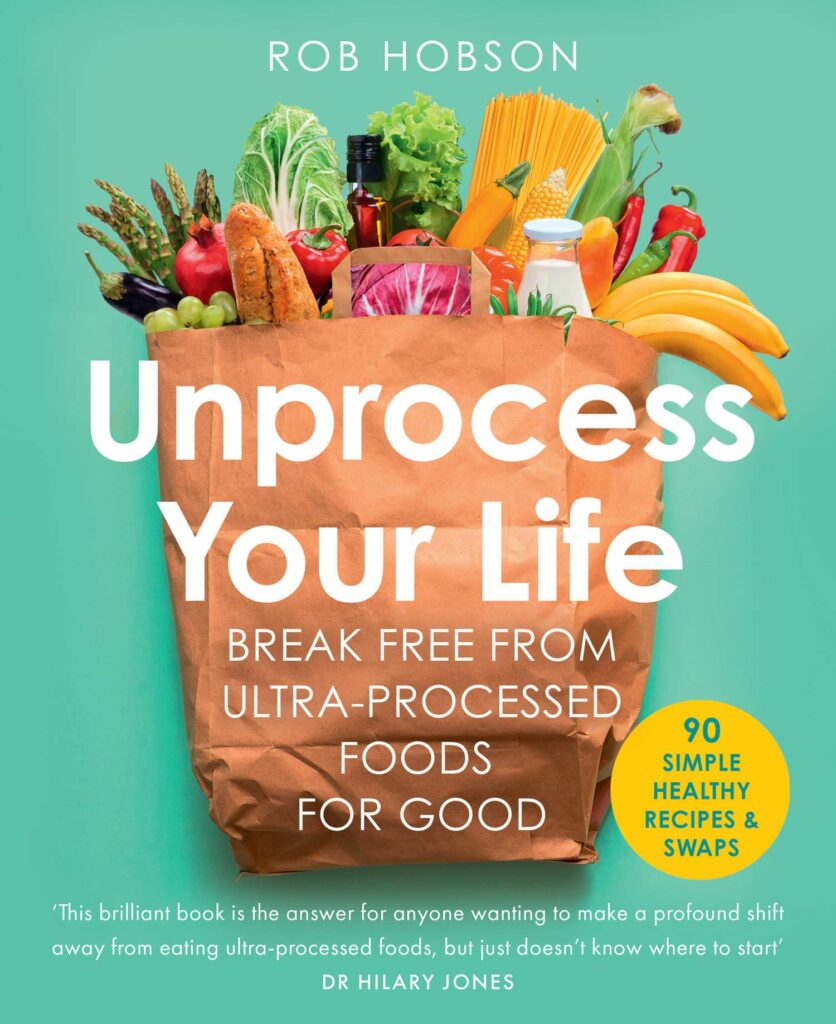
Recipes from: Unprocess Your Life by Rob Hobson (Thorsons, £18.99, Paperback).
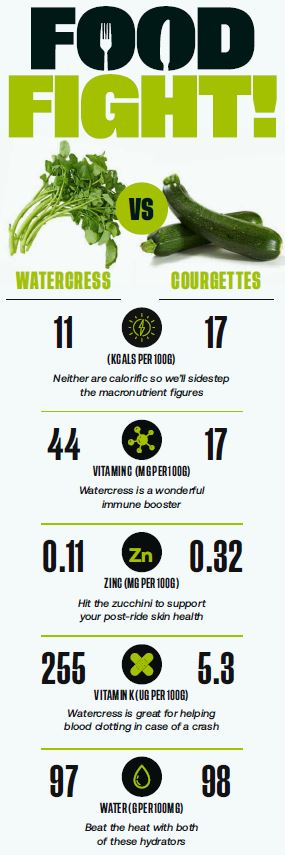
Watercress also contains lots of bone-friendly calcium, plus B vitamins and vitamin A. Both have similar amounts of potassium to bolster muscle contraction. According to the US Centre for Disease Control and Prevention, watercress is the world’s most nutrient-dense vegetable. So…
VERDICT: WATERCRESS WINS